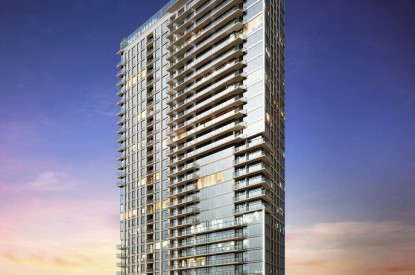Supplier News
Sri Lanka – Sri Lankan government finally rules no on resort style casinos
By Phil - 30 April 2014
With the threat of further demonstrations and protests hanging over it, the Sri Lankan government has now refused to allow casinos at three super-luxury resorts planned in the capital of Colombo.
The ruling ends the hopes of Australian operator Crown Resorts, John Keells Holdings and local businessman Dhammika Perera who wanted to exploit the 2010 legalisation of casinos in Sri Lanka to develop a spectacular resort casino each. Whilst a string of smaller casinos have opened in the country, the government
has ruled that allowing large scale gambling was a bridge too far.
Economic Development Minister Basil Rajapakse said: “We will not allow casinos. That we say very clearly. They asked, we did not allow, nor will we allow.”
The opposition party United National Party (UNP) held a protest in Colombo last week claiming the government was encouraging prostitution through the introduction of the new style casinos.
Buddhist monk and legislator Athuraliya Rathane said his party was against the new casinos due to concerns that gambling would harm the Buddhist culture.
“We voted against these concessions as a warning to the government to correct its course,” he said.
There was no immediate comment from Crown, who had planned to invest US$400m in a 5-star integrated resort in Colombo. It would have been branded Crown Sri Lanka, and was aiming to be a must-see landmark resort located on Beira Lake in the Colombo resort district. Crown Sri Lanka would have been a 5-star facility with approximately 450 rooms and suites, signature dining experiences and entertainment offerings, conferencing and event spaces, gaming areas, retail outlets and a specially designed water feature attraction.
Local businessman Dhammika Perera already owns three licences that have been in operation since 1993, operating as small scale casinos. He planned to phase out these operations and replace them with three much larger casino properties. He planned use one of his approvals for his own Queensbury venture, a $350m resort near Crown’s planned complex. Located on a two-and-a-half acre property in Wijewardena Mawatha, the 40 storey property would have provided a 500 room hotel, shopping mall, a convention centre and multiple ballrooms. He had also committed to giving one to Keell’s $650m Water Front mixed-development project.
The government approved all three projects without the casinos elements and also gave 10-year tax breaks, however without the gaming floor it is unlikely that any will go ahead.
Some Sri Lankan officials wanted the new style casinos to increase tourist levels to 2.5m each year by 2016 up from 1.27m tourists last year.
Analysts didn’t believe that Crown’s owner James Packer would be particularly disheartened despite the time and money invested in the Sri Lankan opportunity.
Brian Han, Senior Research Analyst with Fat Prophets, said: “Even if it [Sri Lanka] all goes to nothing at least he has learnt something from the market as to how the regulatory process works. At a minimum he knows who his competitors are. He is trying to spread his irons right across the world, so that he has a real attractive offering to premium high rollers to visit all these cities. At the same time he wants to have a concentrated effort in the Asian region, whereby not only premium, but also growing demand is just insatiable, and there’s just not enough supply to meet the demand. In Macau, he’s building another property so that will be the principal focus. There’s also talk of him entering Tokyo with what will be a major project if that gets the go-ahead because that will be a $5bn property. On top of that, he’s looking at Sydney, which he will get into in a few years’ time and then there is of course the US market.”
Basil Fernando, a Sri Lankan lawyer and director with Hong Kong-based NGO the Asian Human Rights Commission, explained why many had concerns over the introduction of new casinos. He said: “There is a fear of a greater increase of crimes, for example, crimes related to black money and also crimes related to illegal security forces and others, which has remained a problem in Sri Lanka. The main concern comes out of a very sharp feeling that in the recent decades there has been a considerable breakdown of the rule of law in the country and that instead of trying to solve that problem, the introduction of these hotel complexes will be only a pretext to bring more crime into the country.”


